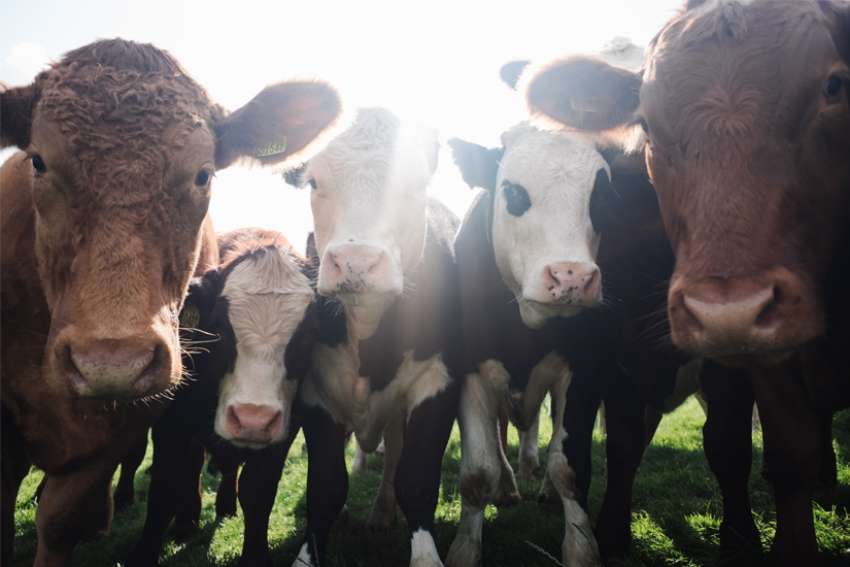At High River’s Cargill plant, Canada’s largest meat-processing facility, 936 cases of COVID-19 had been reported as of May 4 with hundreds more among people in the community who are associated with Cargill workers. At the JBS plant in Brooks, 300 workers had tested positive by the end of April with a total of 1,050 cases in the community by May 10. A city of 15,000 is in crisis because of the spread of the disease from the plant.
The problem is not limited to Alberta. A major outbreak also occurred at the Cargill plant in Chambly, Que., as well as in meat processing plants in the United States, United Kingdom, Ireland, Spain, Australia and Brazil. The apparent cause is well known — unsafe working conditions, workers being jammed together at a time when physical distancing is essential to prevent the spread of the disease.
Another side of this tragedy has been less examined — the role of industrial meat production in destroying animal habitat, a massive global problem. In numerous places around the world, increasing demand for inexpensive meat has led to deforestation which has further led to more wild animals being packed into smaller areas with poor habitat. Studies have shown that this cramming together of animals of different species in closer proximity to human communities has impelled the rise of new and unpredictable diseases.
In the Amazon region, 80 per cent of the deforestation has been to increase cattle production. This has led to an increase of greenhouse gases in the atmosphere and to an existential threat to many Indigenous communities. It has also destroyed massive amounts of wildlife habitat. The environmental science website, Mongabay.com, predicts that the next pandemic could emerge in the Amazon region.
Brazilian President Jair Bolsonaro sees no problem with deforestation. He encourages it in various ways, such as by legalizing what had previously been illegal land theft in protected forest and Indigenous reserves. Last year, the first year of Bolsonaro’s term as president, Amazon deforestation increased 74 per cent.
Massive profits can be made by supplying meat to a hungry world. Except that it is not the hungry who are buying meat, but those in wealthy nations. The highest national per capita rate of meat consumption is in the United States where people consume 120.2 kilograms of meat per capita (2009 figure). Canada ranked 14th with per capita meat consumption at 94.3 kilograms per year.
In both countries, meat consumption is in decline as people switch to other forms of protein for health and environmental reasons. In China, however, per capita meat consumption increased from 52.4 to 58.2 kilograms per year from 2002 to 2009. One might think that this increase is due to increased prosperity. However, India too is becoming a wealthier country, but its people consume a mere 4.4 kilograms of meat per year, the second lowest rate in the world.
Perhaps of greater interest are the sharp consumption declines in countries such as Denmark. In a mere seven years, Denmark cut its per capita consumption from 145.9 to 95.2 kilograms. The reason? A sharp increase in public awareness of the ill effects of meat consumption. The country has launched a Quit Meat helpline and is considering a special sales tax on meat.
Awareness is growing in Canada, too. The 2019 Canada Food Guide urges Canadians to try plant-based proteins such as lentils, beans, nuts, eggs, tofu or chickpeas and to avoid saturated fats. Its website (food-guide.canada.ca) highlights a photo of a plate of healthy food. Only one-quarter of the plate has protein foods, with emphasis given to plant-based proteins. The food guide promotes greater consumption of fruits and vegetables.
Also, ethically-produced meat from smaller producers is becoming more widely available.
Meat is not evil. But we should be aware of the effects of our diet. Our planet cannot sustain the current rate of meat consumption. Industrial meat production is based on demand. That demand threatens workers in processing plants, destroys wildlife habitat, increases obesity, contributes to climate change and threatens to create new pandemics.
The COVID-19 pandemic is being blamed on China’s wet markets, but the problem goes deeper and wider. We need a better-balanced diet to ensure the world has a healthier future.
(Argan lives in Edmonton.)


